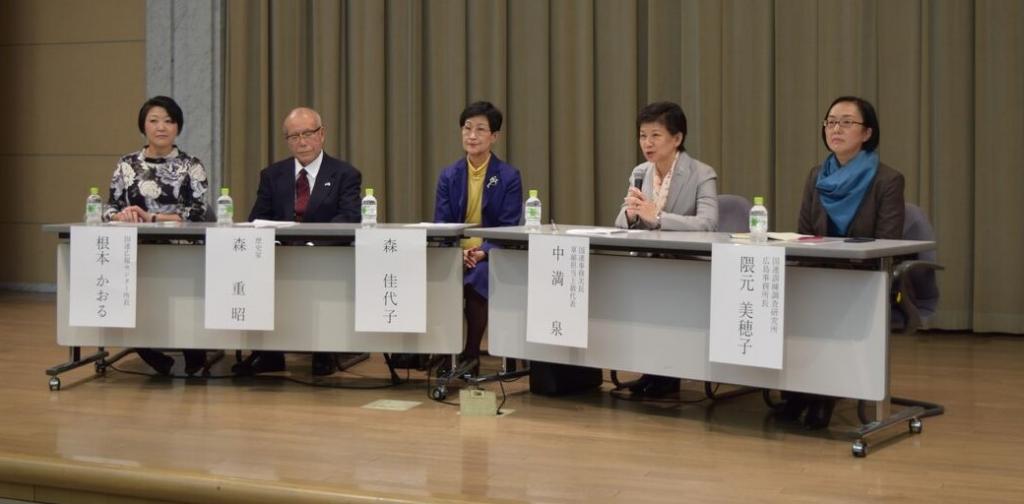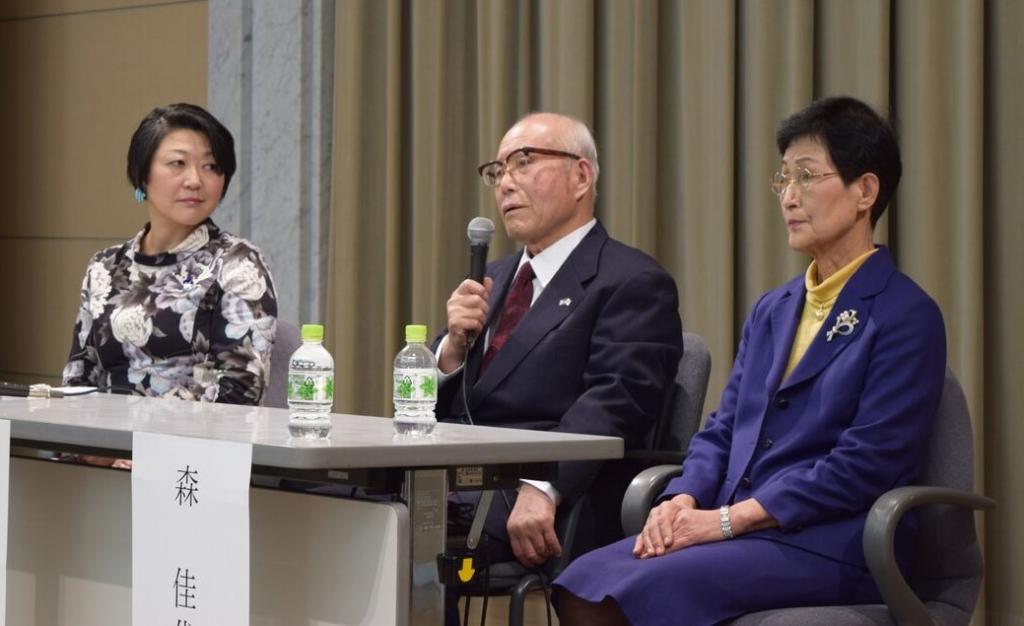UNRCPD and the UNITAR hold a screening of the documentary Paper Lanterns at the 27th United Nations Conference on Disarmament Issues in Hiroshima, Japan
 29 November 2017, Hiroshima, Japan – The United Nations Institute for Training and Research (UNITAR) and the United Nations Office for Disarmament Affairs’ United Nations Regional Centre for Peace and Disarmament in Asia and the Pacific (UNRCPD) co-organized a screening of Director Barry Frechette’s and Producer Peter Grilli’s documentary Paper Lanterns.
29 November 2017, Hiroshima, Japan – The United Nations Institute for Training and Research (UNITAR) and the United Nations Office for Disarmament Affairs’ United Nations Regional Centre for Peace and Disarmament in Asia and the Pacific (UNRCPD) co-organized a screening of Director Barry Frechette’s and Producer Peter Grilli’s documentary Paper Lanterns.
The film was screened on 28 November in the Hiroshima Peace Memorial Museum’s Memorial Hall, as a side event of the 27th United Nations Conference on Disarmament Issues in Hiroshima (29-30 November). The screening was attended by Conference participants and interested members of the public.
Paper Lanterns is about historian and hibakusha (atomic bomb survivor) Shigeaki Mori and his decades-long search for the families of American prisoners of war (POWs) killed in the atomic bombing of Hiroshima. Mr. Mori conducted his research in hopes that people would recognize the American POWs as victims of the atomic bombing and that the Americans’ families could finally find closure. The film follows family members of POWs Normand Brissette and Ralph Neal as they visit Hiroshima and learn from Mr. Mori what happened to the two men.
The screening featured Mr. Mori and his wife Ms. Kayoko Mori as special guest speakers and also included remarks from United Nations Under Secretary-General and High Representative for Disarmament Affairs Izumi Nakamitsu, United Nations Information Centre Tokyo Director Kaoru Nemoto, who also served as screening’s moderator, and UNITAR Hiroshima Office Head Mihoko Kumamoto.
 In his speech, Mr. Mori discussed some of the American prisoners of war he researched and how he explained the circumstances of their deaths to their families. Additionally, some of the most moving portions of Mr. Mori’s speech were when he described the feelings of hibakusha who worked for so long – and still work – to communicate to others the realities of the atomic bombing and their experiences as survivors in hopes that the tragedies of Hiroshima and Nagasaki are never repeated.
In his speech, Mr. Mori discussed some of the American prisoners of war he researched and how he explained the circumstances of their deaths to their families. Additionally, some of the most moving portions of Mr. Mori’s speech were when he described the feelings of hibakusha who worked for so long – and still work – to communicate to others the realities of the atomic bombing and their experiences as survivors in hopes that the tragedies of Hiroshima and Nagasaki are never repeated.
In her opening remarks, Ms. Nakamitsu commented on the duty of younger generations to inherit hibakusha’s stories and messages of peace and disarmament and spread them to all parts of the world. She also noted that the Treaty on the Prohibition of Nuclear Weapons was adopted by the United Nations in July this year, a historic step in fulfilling the wishes of hibakusha for a world free of nuclear weapons. However, while continuing to build on the experiences of hibakusha, it is necessary for all parties to step up efforts for disarmament and non-proliferation.
Ms. Nemoto commented that she had wanted to screen Paper Lanterns as a side event at the United Nations Conference on Disarmament Issues in Hiroshima, so she was glad that the screening was successfully implemented.
Ms. Kumamoto commented that she was moved by the film, which she feels conveys the idea that peace means considering and caring for people as individuals, rather than seeing them as members of a specific nationality.
For more information, please contact
At the UNITAR Hiroshima Office
Kenta MATSUOKA (Mr.) | Email: kenta.matsuoka@unitar.org | Phone: +81 82 511 2424
Photo captions: (top) United Nations Under-Secretary-General Nakamitsu offers remarks at the beginning of the screening; (right) Historian and hibakusha Mr. Mori gives a speech (photos by UNRCPD)

